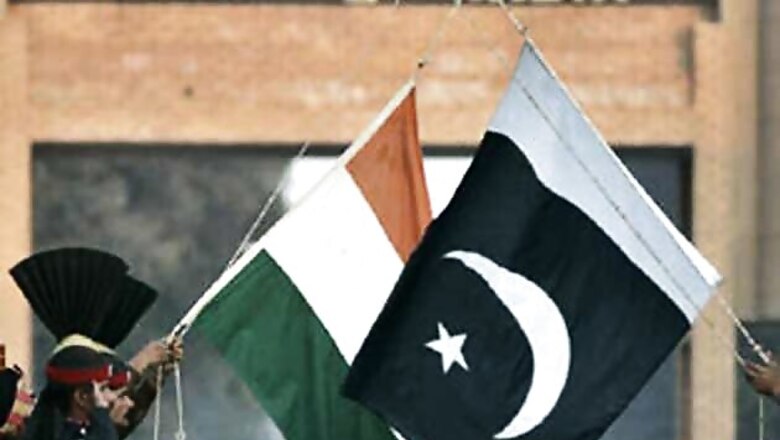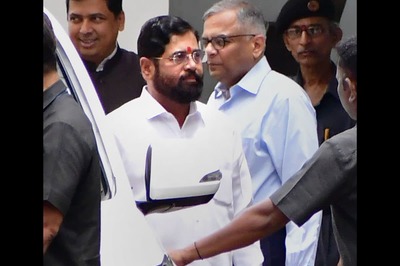
views
Washington: Pakistan continues to consider India as an "existential threat" despite the two countries taking significant appreciative steps in improving their ties, a top American intelligence official said on Wednesday.
"Pakistan and our interests are not always congruent...Their existential threat continues to be India," Director of National Intelligence James Clapper told lawmakers at a Congressional hearing.
Clapper said that after a four-year pause, India and Pakistan revived expert-level discussions on conventional and nuclear confidence-building measures (CBM).
Indian and Pakistani Prime Ministers had cordial meetings during the April international cricket championships and the November South Asia Association for Regional Cooperation (SAARC) meeting, he said.
However, despite these appreciative steps in improving ties, India is expected to adopt a "go slow" policy in its talks with Pakistan on the issue of Siachen Glacier and Sir Creek, Clapper said.
"Less progress has been made in discussions over the difficult border issues of Siachen Glacier and Sir Creek, and we judge New Delhi will maintain a go-slow approach in these negotiations," he said.
"Progress expanding trade ties has also helped improve relations, and Islamabad in November publicly committed to a proposal for granting most favored nation trade status to India," he said.
The American intelligence official also said that India is unlikely to send troops or heavy equipment to Afghanistan, fearing a backlash from Pakistan.
"New Delhi in the near term is unlikely to send troops or heavy equipment to Kabul because it does not want to provoke Pakistan," Clapper said.
Clapper said India recently signed a strategic agreement with Afghanistan, which is likely to facilitate closer bilateral security cooperation, more training of Afghan security personnel, and modest material support to Afghan Government security forces.
"India's increased engagement is aimed at helping the Afghan Government sustain its sovereignty and independence during and after ISAF forces draw down. The Indian Government also is increasing efforts to spur Indian investment in Afghanistan's fledgling natural resources sector, which New Delhi sees as crucial to its strategic and economic interests in the region," he said.
Clapper said the US judges that India sees its goals in Afghanistan as consistent with US objectives and favors a sustained ISAF and US presence in the country.
"India will almost certainly cooperate with the United States and Afghanistan in bilateral and multilateral frameworks to identify assistance activities that will help bolster civil society, develop capacity, and strengthen political structures in Afghanistan," he said.
"Moreover, India consistently ranks among the top three nations that Afghans see as helping their country rebuild. As of August 2011, India ranked as Afghanistan's fifth largest bilateral donor," he said.
Speaking on America's ties with Pakistan, Clapper said this is a challenging relationship, but it's an important one for the reason that Pakistan is a nuclear power.
"They have paid a huge price because of the militancy that they have had in their country and have suffered literally thousands of casualties in that context. So sometimes our interests converge, and sometimes they differ," he said.
"As I would characterise the relationship, it's crucial that we have one and have a positive relationship, even though we've gone through some trying times," Clapper said responding to a question from Senator Dianne Feinstein, Chairwoman of the Senate Select Committee on Intelligence.



















Comments
0 comment